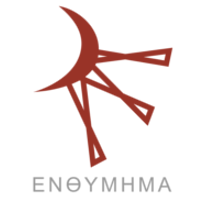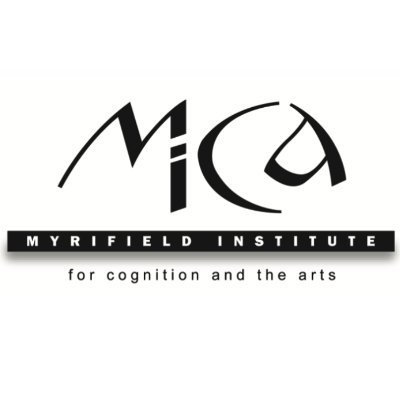4th Global Conference – Performance: Visual Aspects of Performance Practice
4th Global Conference
Tuesday 17th September – Thursday 19th September 2013
Oxford, United Kingdom
www.inter-disciplinary.net
Call for Paper – Deadline: Friday 5th April 2013
Theatre and the many varied expressions of performance practice are by their nature inter-disciplinary forms of art. They draw ideas and symbolisms from diverse theoretical and creative fields of humanities, making historical references and links, presenting social relations, putting forward great ideas and dilemmas of the mind, highlighting aspects of the human personality and employing all existing art-forms in order to create a performance as a whole. Performance practice, whether in a theatrical space, site-specific space, or as a street or public performance of any nature, can be examined from the artistic point of view, but also from a cultural, a sociological, a historical, a psychological, a semiological, an anthropological, as well as from an educational perspective. The term “performance practice” refers to the interface within which the work of the director, performer, movement director and choreographer, scenographer (set and costume designer), musical director, composer, lighting designer and sound designer meet. It also includes all aspects and issues involving the creative process, from the initial concept to the final realization and presentation to an audience.
The aim of this conference is to develop discussion with a focus on the visual aspects of performance brought up by visual and spatial artists and researchers in various performance disciplines and practices.
Papers, workshops, presentations and pre-formed panels are invited on any of the following themes:
1. Narrative and Meaning
- Visual interpretation of text / of narrative
- Visual literacy and perception within performance
- The relationship between narrative, visuality and textuality
- Challenging of established aesthetics, the relationship of old and new traditions
- Visual expression and symbolism in theatre and performance
- The notion of the visual metaphor
- The role of imagination today (before, during and after a performance)
2. Design Processes
- The birth of a visual concept
- Design as theatrical action
- Visual resources, and interpretation in performance
- Scenographic materials, form, texture, composition and light
- From design to realization – the process for the creation of a visual/spatial environment
- Collaboration and practice in the visual aspect of performance making
- Aesthetics and visual principles in performance
- Media and new technology as performance visual elements
- Challenging traditions: New approaches in performance design and practice
3. Set and Costume, discourse and practice
- Scenographer: The author of space?
- History of scenography
- Leading figures in the world tradition of scenography
- Costume and the body, embodiment and expression
- Actor-character: Dressing the performer, dressing the character
- Body and space: The spatial dynamics of costume
- The performativity of costume / The narrative of dress in performance
- Costume sociology
4. Perception
- The gaze of the spectator / Aspects of spectatorship
- Experience and perceptions of the performer
- Experience and perceptions of the audience
- Cross-cultural appropriation, Inter-disciplinarity and Interactivity in performance
- The impact of new media on performance
- Liveness / humanness and the contemporary technological context
- Intersections of art and performance
- The visual and the other senses in performance (e.g. the haptic, the aural, the olfactory)
5. Pedagogy & Policy
- Designing theatre for diverse settings and audiences (e.g. children, elders, communities, people with disability)
- Performance, ethics, poetics, and politics – visual approaches
- Researching methods and interdisciplinary methodologies of performance making
- Teaching the visual aspects of performance practice, context and approaches
We welcome submissions from within specific disciplinary boundaries, but we are also particularly interested in interdisciplinary contributions that balance the scope of insight that disciplines bring with the limitations that disciplinary boundaries create in failing to recognise cross-disciplinary connections, which neglect important historical and cultural perspectives on the development of the ‘erotic’ as a locus of attention. Consequently, we are particularly keen to encourage submissions that are not subsumed within disciplines, but cut across and between disciplinary vocabularies to provide new synergies, domains and inter-disciplinary possibilities. We warmly welcome proposals which go beyond traditional paper presentations and encompass also panels, performances and workshops.
What to Send:
300 word abstracts should be submitted by Friday 5th April 2013. If an abstract is accepted for the conference, a full draft paper should be submitted by Friday 21st June 2013. Abstracts should be submitted to the Organising Chairs; abstracts may be in Word, WordPerfect, or RTF formats, following this order:
a) author(s), b) affiliation, c) email address, d) title of abstract, e) body of abstract, f) up to 10 keywords.
E-mails should be entitled: Performance4 Abstract Submission
Please use plain text (Times Roman 12) and abstain from using any special formatting, characters or emphasis (such as bold, italics or underline). We acknowledge receipt and answer to all paper proposals submitted. If you do not receive a reply from us in a week you should assume we did not receive your proposal; it might be lost in cyberspace! We suggest, then, to look for an alternative electronic route or resend.
Organising Chairs:.
Sofia Pantouvaki: sofsceno@gmail.com
Rob Fisher: perform4@inter-disciplinary.net
The conference is part of the Critical Issues programme of research projects. It aims to bring together people from different areas and interests to share ideas and explore various discussions which are innovative and exciting. All papers accepted for and presented at the conference will be eligible for publication in an ISBN eBook. Selected papers may be developed for publication in a themed hard copy volume(s).










